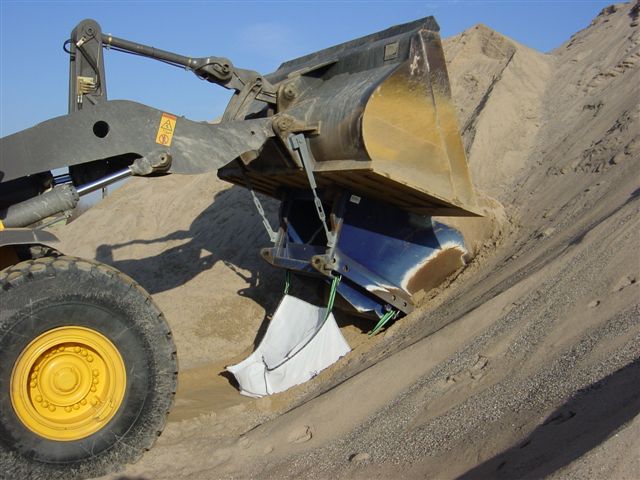Bulk bags are a great way to carry bulk quantities of materials. They come in various shapes and sizes and can be used for all sorts of things. One question that comes up often is, “can you use bulk bags in the construction industry?” The answer is yes! Bulk bagging allows workers to move large amounts of material quickly without having to load it onto trucks or other vehicles. This means less fuel consumption and more efficiency onsite.
The bulk bag has been a staple in the construction industry for decades. But are bulk bags still relevant? Are bulk bags even being used today? The answer is yes, bulk bags are very much so still in use and here to stay. There’s a good reason why: bulk bags can be filled with grain, sand, gravel, and other materials that would otherwise be difficult or time-consuming to load into trucks by hand. Bulk bags can also be picked up by front-end loaders and dumped onto a pile of dirt, saving additional time and effort which would have been spent shoveling material from one pile to another.
Also Read How to choose the reliable partner in construction equipment transportation
What are Bulk Bags?
The bulk bag is an alternative to loading bulk material by hand or transporting materials in open trucks where dirt can be flying everywhere. They also save time because they do not need to be shoveled out like when you would dump bulk material off of pallets onto another pile. Bulk bags provide benefits such as saving costs on labor, protecting workers from injuries, helping create less dust pollution in the environment near your worksite, reducing the risk of over-loading vehicles which leads to accidents that cause delays and possible fines that may arise due to this issue.
Advantages of using bulk bags in the construction industry
Bulk bags are a great option for bulk materials in the construction industry because they can store large quantities of material that are compact and easy to transport from place to place. Bulk bags protect bulk materials from rain, snow, wind, dirt, and other environmental factors which makes them an ideal choice when transporting bulk products by hand or through open trucks. The main advantage of using bulk bags is safety; no one has ever died while working with bulk bag systems! Because compared to many other methods used for transporting bulk material workers who load or unload cargo onto vehicles have fewer accidents than those involved in loading loose materials into dump trucks
Disadvantages of using bulk bags in the construction industry
Bulk bags have a lot of advantages but do bulk bags have disadvantages? Well, bulk bags are not perfect. Bulk bag walls allow water to go through them and they can get punctured or torn which allows the contents within them to spill out. This can be a real problem if bulk bags are not loaded properly onto vehicles. It is important that bulk bags do not contain any sharp objects because the bag walls are thin and could easily puncture or tear.
Uses for bulk bags outside the construction industry
When bulk bags are not being used within the construction industry, they can still be put to good use. Bulk bags work great for storing feed and other types of animal food products. They also make great sandbags that protect riverbanks from erosion which is a really big issue along rivers that contain fast-moving water.
Bulk bags can be used to store bulk items that people do not use every day. For example, bulk storage of bulk home-brewers yeast is a great way for brewers who make their own beer at home to ensure they always have fresh ingredients on hand. The same goes for bulk spices and bulk sugar so bakers don’t run out in the middle of an important baking project or holiday meal.
In addition to being used as sandbags, bulk bags are also frequently employed as longshoremen’s cargo container nets when loading ships with heavy materials such as coal and iron ore because these types of bulk bags offer more resistance than regular jute sacks which allow much lighter weight cargos to move around freely inside them once they have been removed from the bulk bag.
How to choose the right size and type of bag for your needs
Choosing bulk bags for your needs can be challenging, but knowing some of the basics about bulk bag types and sizing will help you narrow down your choices.
Bulk bags are available in different sizes to suit a number of applications including sandbags, heavy cargo netting, food packaging, bulk feed storage, and more. They are offered as being either open top or closed tops which offer two very distinct uses (although most large bulk bags do come with both options).
Closed-top bulk bags allow their contents to remain dry while retaining their shape during transit. This is ideal for lighter-weight materials like sugar where it may not make sense economically to line the inside of every car with plastic sheeting before loading because light stock material may still move around freely.

